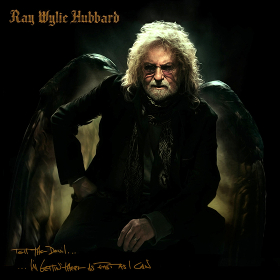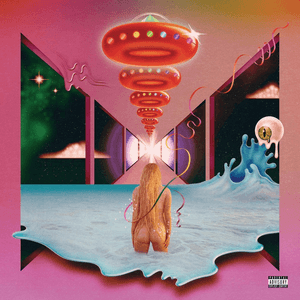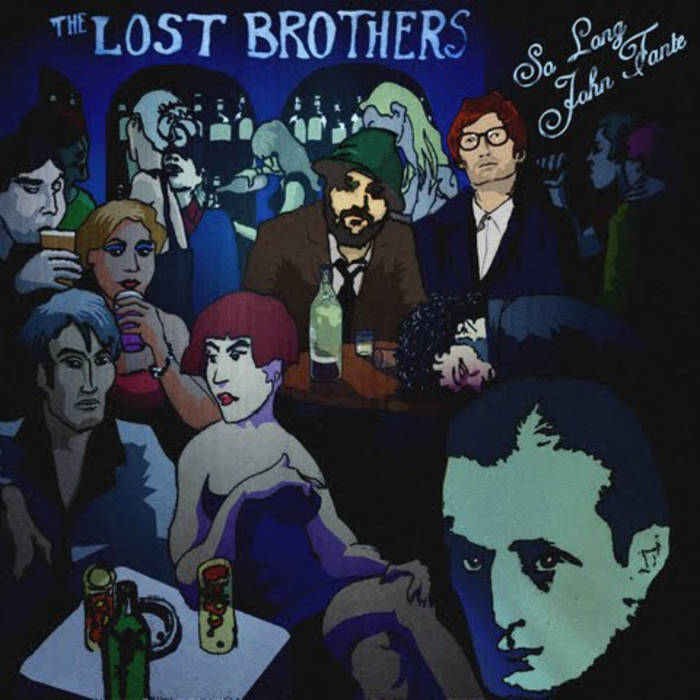“Nobody even attempts to write a melody.”
These were some of the infamous words of Merle Haggard when he gave his opinion on modern mainstream country back in 2015. Interesting words because while you can find plenty of people harping on the lack of lyrical content and substance in the mainstream, or bitching about the encroachment of other genres and electronic beats into their beloved country music, not many people have commented on what may be the most rampant problem running through modern American music: the consistent lack of memorable and engaging melodies.
But even though we don’t mention it, this makes sense in the mainstream. Much of the stuff coming from Music Row is unimaginative and forgettable, and the lack of melody is only one small problem. So yeah, maybe we don’t criticize it often enough, but it’s not a stretch to see the undeniable lack of care for this crucial element in mainstream country.
But I’d argue it’s an even bigger problem in the world of Americana and independent music; yep, you know, that world where everything is good, and we can’t criticize anything. IN fact, I’d say that the mainstream is maybe the best place to find entertaining melodies these days–and no, that’s not saying a lot because so much mainstream music is just downright boring, but the majority of the songs we call “guilty pleasures” that come out of the mainstream stick with us because they’re catchy. They get stuck in our heads. Sure, we know the lyrics are stupid, maybe even at times misogynistic. But it’s the melody, and/or that lively, infectious instrumentation that keeps us liking the song despite how our mind tells us we should feel about it.
Conversely, how many Americana projects have you listened to that while there weren’t any flaws per se, there was also nothing memorable whatsoever? Maybe you read reviews or heard from listeners how great a record was, how awesome the songwriting was, etc., and for whatever reason just could not get into the album. That’s not to take away from the special art of songwriting, and it’s also true music is by nature subjective, but sometimes, albums are ruined just by a lack of effort and care for the melodies. Ray Wylie Hubbard’s is a shining example of this and indeed the inspiration for this post; equally, John Moreland’s latest might well have been the most boring record of the year if not for those catchy hooks and enchanting melodies that kept you coming back enough times to really unwrap the brilliance in his lyrics.
This problem of forsaking melodies is no doubt directly related to the equally alarming lack of quality vocalists in the independent scenes, which is itself a topic worthy of an entire post. We question whether to criticize such things as a singer’s vocal ability, and indeed, things like tone can’t be helped, but the technical abilities of singers can also be improved. Shows like The Voice and American Idol have gone to the other extreme, painting a picture of vocal ability as everything without taking into account an artist’s ability to draw an audience in emotionally. This emotional connection is more vital than technical skill, But singing is also more than emotive interpreting; this is what makes it different from reading poetry. it’s also nice to hear a great vocalist sing the hell out of a song; that’s one of the reasons Lauren Alaina’s sophomore album was such a joy to listen to.
When singer-songwriters are writing songs to fit their increasingly limited vocal ranges and abilities, their melodies become limited as well and often become somewhat of an afterthought. The results are often good lyrics that were turned into boring, lifeless songs. I’ve heard numerous Americana albums like this in 2017, brimming with good songwriting but completely forgettable. A singer may indeed possess that special thing that connects them with an audience and allows them to draw emotion out of every word, but does that matter if those magical words are translated into boring, forgettable music? Melody is what brings the lyrics to life and makes the songs resonate with us and get stuck in our heads. A script is only as good as the actors who make it come alive onstage, and lyrics on a page are only as thoughtful and relatable as the vocalist who interprets them for the world and the melody to which the songwriter sets them.
We praise songwriters, and we say we’re living in the age of the song, but it’s more like the age of the lyric. These independent/Americana types are often so caught up in telling a story and/or being deep and thoughtful that they forget what makes music such a unique and treasured art form. It’s good to be artistic, but that artistry shouldn’t replace accessibility. Even our greatest songwriters like Jason Isbell are guilty of this; there’s some brilliant material on his latest album, but some of it is honestly just forgettable melodically. This is not to take away from Jason Isbell as an artist or a lyricist, more to paint a picture of just how deep the problem goes and to illustrate that even the greatest songwriters and albums suffer from this phenomenon in 2017.
There is a lot of talk these days, especially in this blogging world, about what, if any, of the music coming out currently will be remembered years from now. Not ten or twenty, but say, fifty years down the road. Will we be listening to any music from today like people still listen to Hank? That’s a whole different discussion, but I’d argue that it’s not just the lack of substance keeping songs from having that timeless quality. It’s not just shallow radio singles that will be forgotten, but many of our greatest songwriters in both mainstream and independent music will suffer the same fate if they continue to treat melody as some sort of secondary element. It’s that indefinable thing that keeps us coming back to a song years later, that recalls a memory, a specific place and time, and has us singing a chorus we haven’t heard in so long but to which we still can recite the words. It’s the melodies which linger on in our minds and stir our hearts, and I hate to see it becoming so marginalized, even by otherwise great musicians and lyricists. So songwriters, please don’t forget this crucial part of your craft, or treat it as somehow secondary to your lyrics. It’s the thing that holds them together and gives them character, taking those thoughts from your head and words on a page and turning them into timeless songs that we’ll sing for years to come.


